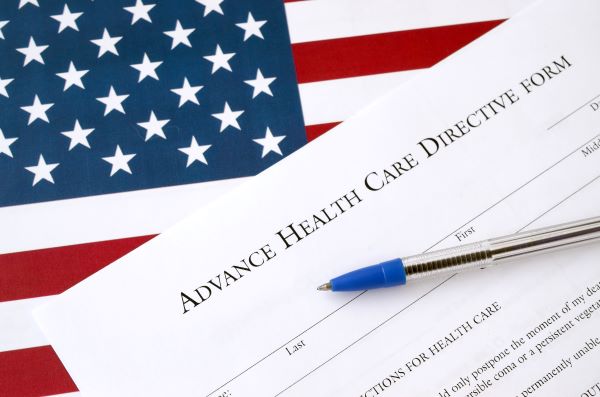People have a tendency to always want to be self-sufficient. They also tend to avoid…

Discussing Treatment Is an Essential Part of Establishing Advance Directives
There is no doubt that contemplating our own death is one of life’s greatest challenges. Yet it is crucial to think carefully about the medical treatment we would want at the end of life. Medical technology can now keep us alive long after we have ceased to enjoy a meaningful quality of life.
A series of legal rulings around thirty years ago established the rights of patients to decide when life support should be stopped. The fear of being kept alive indefinitely by artificial means led many to create legal documents known as advance directives. An advance directive expresses our wishes about the kind of medical treatment we would prefer. It is called “advance,” meaning ahead of time, and “directive,” our instructions to family and medical providers about whether to keep us alive at all costs or let us pass naturally. Think about specific situations you may face and your biggest concerns. Document what you would want to happen so family members don’t have to make difficult decisions and healthcare professionals can legally comply.
After thirty years, concerns have now shifted to assess whether advance directives really serve the purpose for which they are intended.
Do Advance Directives Ensure We Receive our Preferred Treatment?
The short answer is “yes, but.” Yes, because it is very important to create a legal document that appoints and instructs a person to help communicate your wishes. Establish a close relationship with one or two people – called “agents” or “proxies” –to step in when you can no longer make healthcare decisions for yourself. Patients must talk with their agents and explain what they want in as much depth as possible, where they stand on end-of-life decisions.
And here is the “but.” Over the years, we have learned that advance directives might not work as well as they could. Some concerns have emerged:
- It is unrealistic to micro-manage health care in advance. There are so many variables that depend on the particular situation. When treating a complicated illness, the right treatment must be arrived at, often by a team of various specialists who sort through the details. Under those circumstances, it can be difficult, if not impossible, to interpret a legal document that was intended to guide medical treatment for as-yet-unknown conditions.
- The “check-the-boxes” approach taken by many “fill-in-the-blank” forms is too crude to be helpful in any but the most general of ways. Without additional detail, these documents don’t adequately address the nuances that almost always arise.
- Change is constant, and humans are adaptable. It is one thing to imagine when in good health that life would not be worth living if, say, you became permanently bedridden. But when the patient is actually in that situation, new meaning in life could emerge. Choices made years in the past might look a lot different in the moment of truth.
- The prognosis can change with time. As reported in Kaiser Health News, A New Paradigm Is Needed: Top Experts Question the Value of Advance Care Planning,
early in the COVID-19 pandemic, the virus was considered fatal to seniors. If a senior contracted the virus and their advance directive stated that they didn’t want to be placed on a ventilator, doctors complied because they didn’t think they could help them recover. Many may have died unnecessarily.
- The documents must be readily available, both at your home and with the agent or proxy. They must not be hidden away and forgotten about, so no one can locate them when they are needed.
Starting the Conversation
The best alternative is to create an effective, current, and available legal document. A document that meets legal requirements is essential, but beyond that, a conversation in advance with your family, agent, or proxy is crucial.
That conversation should occur first between you and your agent or proxy, discussing the quality of life issues and what matters most. The talk should avoid excessive detail for hypothetical situations that may never arise. Rather, the aim should be to provide the agents or proxies with enough information to respond flexibly to unforeseen circumstances.
These conversations can be challenging. Helpful resources to assist can be found at The Conversation Project or the Centers for Disease Control and Prevention.
When the time comes that you are unable to speak or make decisions, your agent will be equipped to convey your wishes to medical providers. Knowing those wishes in advance, the agent can focus on ensuring that providers furnish as much information as possible to make the hard decisions based on the medical facts presented.
What if You are Alone and Without a Trusted Person to be Your Agent?
First, study the guidance resources provided in this article. Then call us to create a legally effective advance directive that spells out your wishes. Visit your doctor to discuss your wishes and give them a copy of your document.
You must make sure that doctors and agents have copies ready for use. And everyone should also carry a wallet card from the American Hospital Association to inform healthcare providers whom to call in case of an emergency.
There are no assurances in this life except that it will eventually end. The hope is that we will have delegated people whom we trust to step in when we need them – and that we will have talked with them about the kind of care we want to prepare for a passing that is peaceful.
Please contact our law firm to speak with a qualified elder law and estate planning attorney to tailor a plan for you or your loved one.




This Post Has 0 Comments